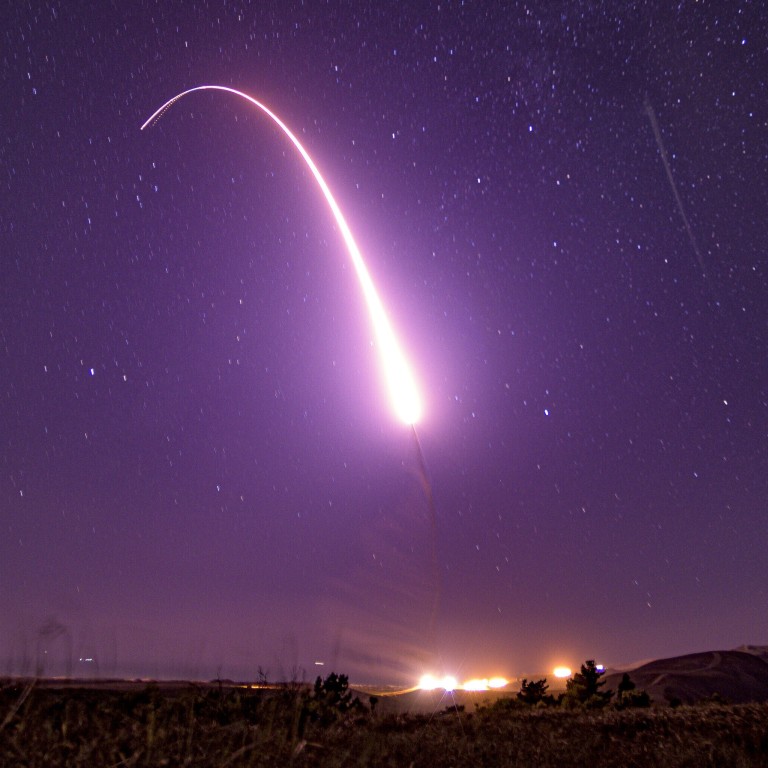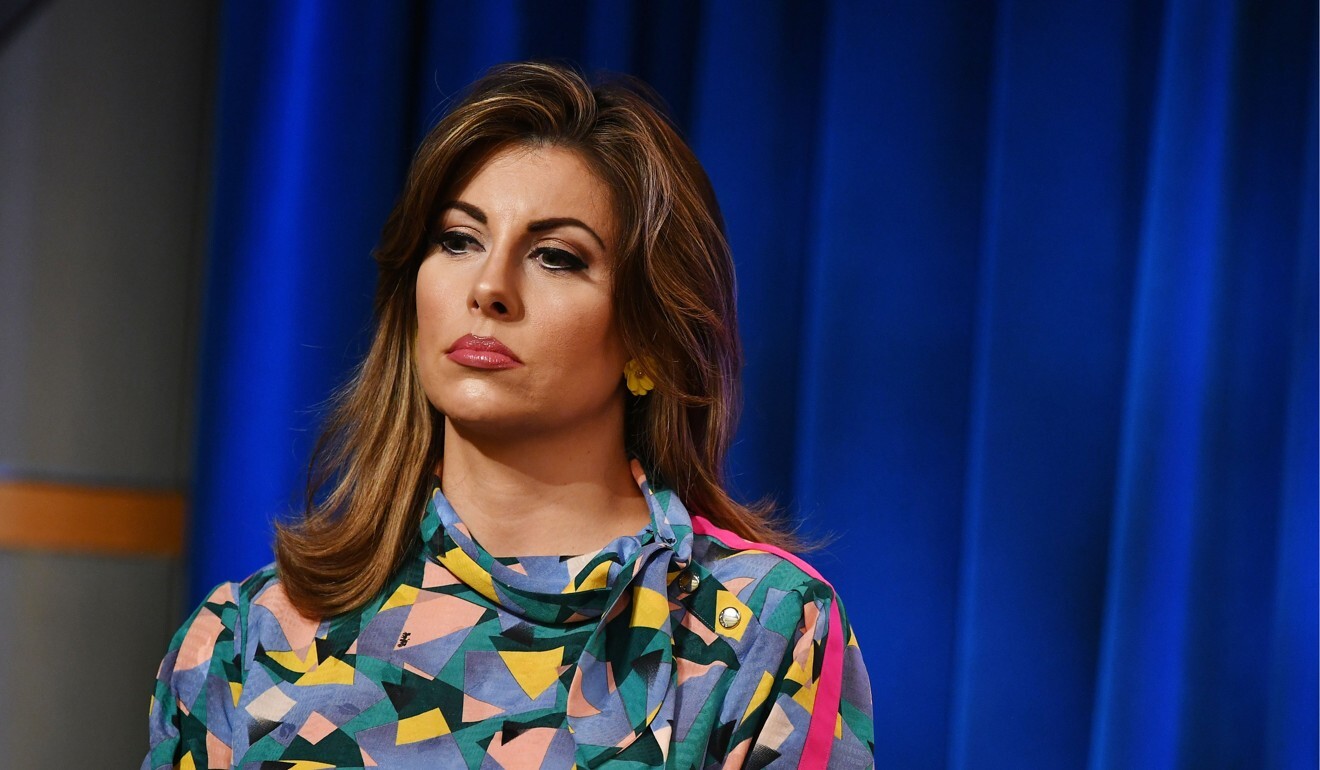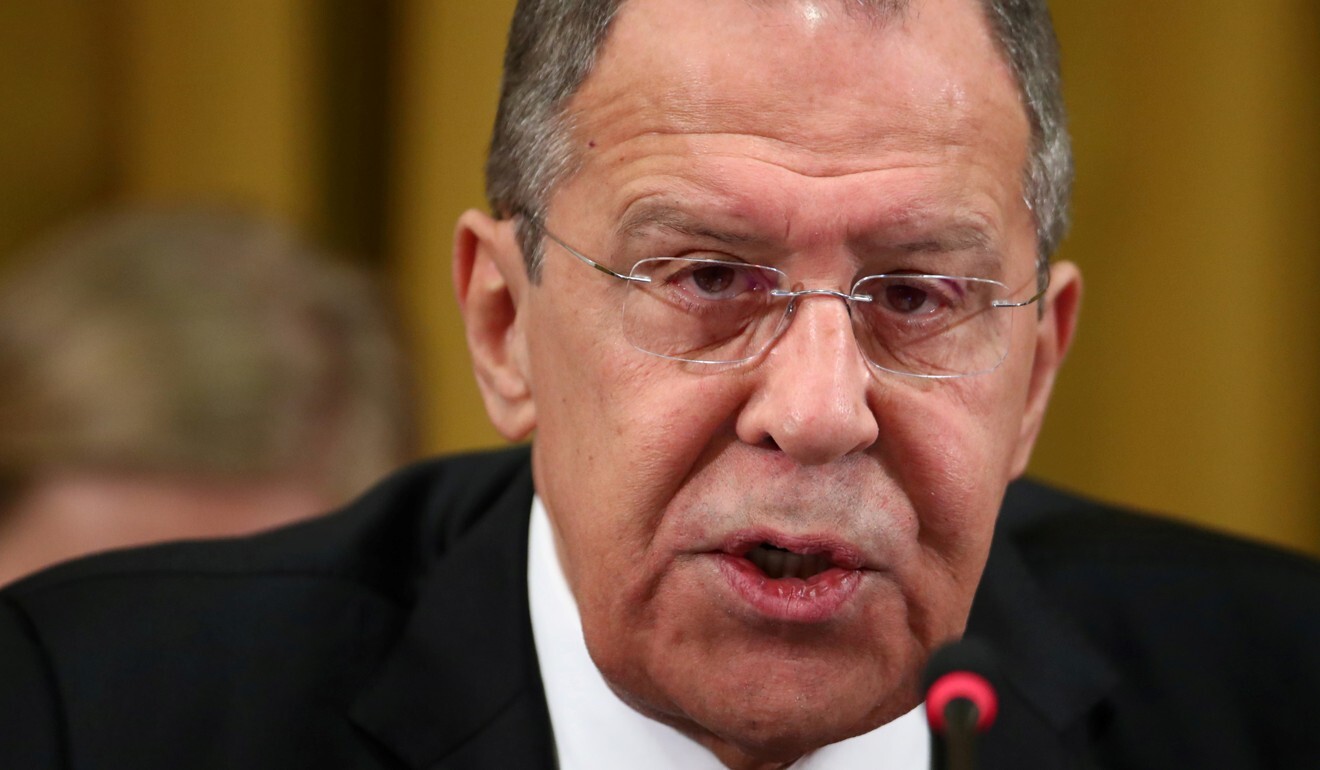
US and Russia appear set to extend ‘New Start’ nuclear pact
- Moscow said on Tuesday it could agree to US-proposed freeze on each side’s warheads and to extend treaty by one year
- US says it’s ready for quick deal, after apparent breakdown in talks last week
The United States and Russia inched closer on Tuesday to a deal to extend their last remaining arms control pact, after US threats to allow the deal to expire early next year.
The two sides signalled they are ready to accept compromises to salvage the New Start treaty just two weeks ahead of the US presidential election in which President Donald Trump faces a strong challenge from former vice-president Joe Biden, whose campaign has accused Trump of being soft on Russia.
After the White House last week rejected a proposal from the Kremlin to keep the accord alive, calling it a “non-starter”, Moscow said Tuesday it could agree to a US-proposed freeze on each side’s nuclear warheads and to extend the treaty by one year. In response, the US said it was ready for a quick deal.
In a statement, Russia’s Foreign Ministry outlined the shift in Moscow’s position after last week’s apparent breakdown in the talks on New Start, which expires in February. It said Russia is prepared for a deal if the US agrees to put forward no additional demands.

The US State Department then welcomed the Russian offer.
“We appreciate the Russian Federation’s willingness to make progress on the issue of nuclear arms control,” department spokeswoman Morgan Ortagus said. “The United States is prepared to meet immediately to finalise a verifiable agreement. We expect Russia to empower its diplomats to do the same.”
There was no immediate indication of when the two sides might meet to conclude an agreement or what form it might take.
New Start was signed in 2010 by then US President Barack Obama and then Russian President Dmitry Medvedev. The pact limits each country to no more than 1,550 deployed nuclear warheads and 700 deployed missiles and bombers, and envisages sweeping on-site inspections to verify compliance.
After both Moscow and Washington withdrew from the 1987 Intermediate-Range Nuclear Forces Treaty last year, New Start was the only remaining nuclear arms control deal between the two countries.
US hostility means China can’t come clean on its nuclear arsenal, official says
Russia had offered to extend it without any conditions, while the Trump administration had initially insisted that it could be renewed only if China agreed to join. China has refused to consider the idea.
The US recently modified its stance and proposed a one-year extension of the treaty, but said it must be coupled with the imposition of a broader cap on nuclear warheads. The cap would cover warheads attached to battlefield weapons, which are not limited by New Start treaty because it restricts only strategic nuclear arsenals.
Last week, Russian Foreign Minister Sergey Lavrov argued that Russia could not agree to the US proposal to limit tactical nuclear weapons alongside nuclear warheads that arm strategic missiles and bombers until Washington agreed to withdraw its nuclear warheads from Europe.
Lavrov also noted that Moscow would not accept the US demand to have intrusive verification measures like those that existed in the 1990s when inspectors were positioned at missile factories. Moscow appears still to resist the deeper inspections, which are not envisaged by New Start.

Daryl Kimball, executive director of the Arms Control Association in Washington, said “a one-year politically binding warhead freeze could be a useful confidence-building measure if combined with a one-year New Start extension, with the option of an additional extension adding up to a total of five years”.
“It would be a step in the right direction that would avert, for now, an all-out arms race,” Kimball said, adding that it would give Washington and Moscow more time for further talks on a new deal to cut their nuclear arsenals.
In the closing days of his re-election bid, Trump has looked for ways to boost his foreign policy record, and although he says he favours nuclear arms control, he has called New Start flawed and unfavourable to the US Last year, he withdrew the US from the INF treaty with Russia, and he waited until this year to begin engaging with the Russians on the future of New Start.
Hans Kristensen, a nuclear weapons expert at the Federation of American Scientists, tweeted that Russian President Vladimir Putin was offering a deal that would fall far short of the Trump administration’s original demands, including its insistence that China become part of a new treaty.
US assesses bolstering nuclear warheads as talks with Russia stall
“For Trump, accepting Russian position would constitute astounding walk-back: no “fix” of New Start, no improved verification, no inclusion of “outside” weapons, no China,” Kristensen said.
Biden, who was vice-president when New Start was negotiated during the Obama administration and ratified by the Senate, has said he wouldn’t hesitate to agree to Putin’s original proposal for a five-year extension of New Start. That would be followed by negotiation of a follow-on deal.
Senator Bob Menendez, the top Democrat on the Senate Foreign Relations Committee, welcomed the decision to extend New Start but said it was only a “temporary Band-Aid which fails to resolve the critical arms control issues facing our nation today”.
In his statement, Menendez said the impact of the freeze on nuclear warheads will be unclear unless the Trump administration has the ability to verify Russia’s compliance.

